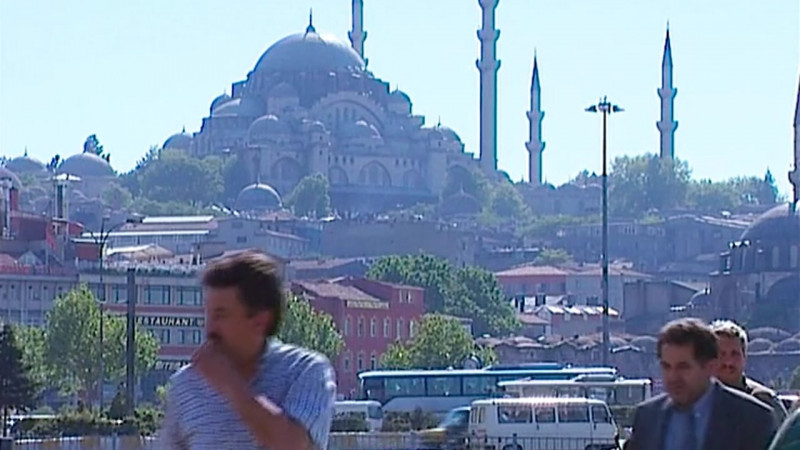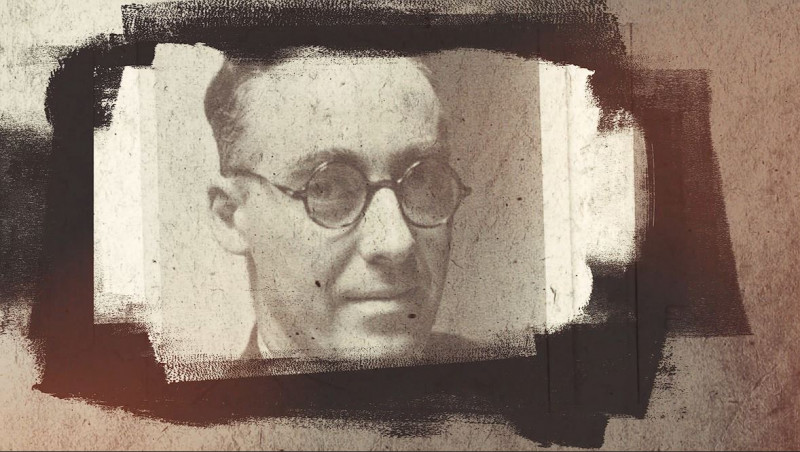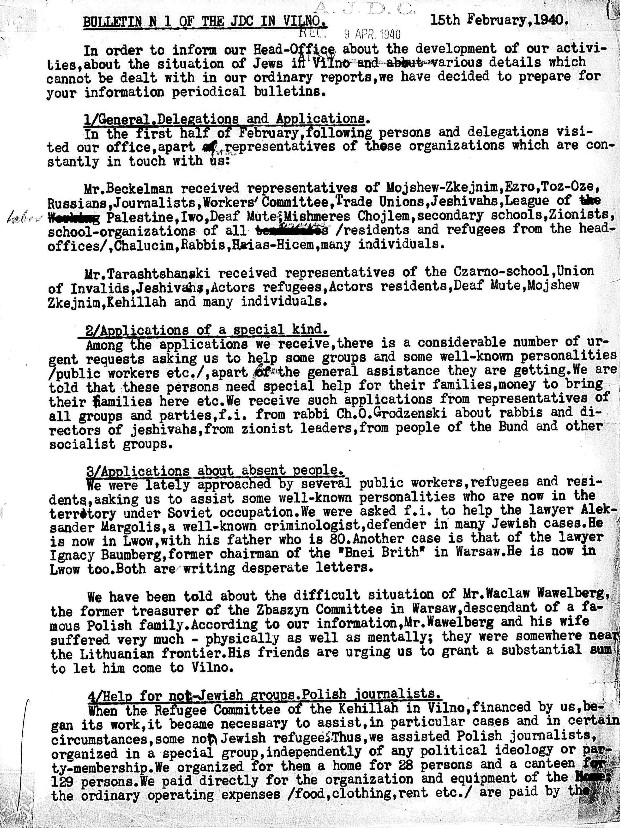Confidential Memorandum regarding the Changed Situation of Russian Refugees in Istanbul, Turkey, and the Appeal of the American Committee there
I. The Present Situation. Turkey has, as is well known, been passing through a most remarkable transformation under the able leadership of Kemal Pasha. Due, however, to the depression and to the recent insistence by the representatives of certain foreign Governments that the law of 1933 requiring foreign nationals to give up certain gainful occupations or become naturalized should be enforced against the few remaining White Russians in Turkey, the plight of these refugees – now reduced by evacuation and death from about 200,00 to about 2,000 in number – has suddenly become extremely serious. These refugees have heretofore been tacitly exempted as being “guests of Turkey” and virtually without any effective nationality. The situation has been complicated by the fact that until very recently the actual conditions of obtaining naturalization, especially for White Russians, have been so difficult – in spite of the broad provisions of the Naturalization Law of May 28, 1928 – that only a handful have been both willing and able to meet the requirements.
It should not be understood that the Turkish Government has been hostile to the refugees, for this is not the case, although naturally giving first consideration to its own nationals. It has, in accordance with historic traditions of Turkish hospitality, shown consideration for their difficult status. It would doubtless have been glad to do more had it not been for certain international complications. It has not forgotten that in the early Eighteenth century – during the time of Catherine the Great – when several thousand Russian Cossacks, dissatisfied with their condition in Russia, came over the border, they were permitted to remain and practise [sic] their own religion and use their own language, in spite of the fact that relations between Russia and Turkey were not then friendly. Their descendants still remain in three big villages on the Marma River and are loyal Turkish citizens. Similarly, over two generations ago, a group of Polish Revolutionaries left Russia and settled the village of Polonese Key, on the Bosphorous [sic], about 25 miles from Constantinople. The hospitality shown in the 16th Century to the Spanish Jews whose descendants are still scattered through Turkey might also be mentioned. Such traditions of national hospitality to other European groups have not been lost on the present generation, but the Government has been placed in an awkward position owing to pressure from outside source which have not liked to have a large group of White Russians in Turkey.
The evidence that the Turkish Government now intends, in kooping [sic] with these precedents, to facilitate the acquiring of citizenship by the White Russians, is, as stated in a recent letter (December 3) from Istanbul, their “only gleam of hope”. It is consistent with the spirit of the Convention regarding Refugees signed at Geneva in 1933 by the representatives of 15 Powers, which provided that “the most favorable treatment” should be “granted to nationals of a foreign country in the sphere of social insurance, relief and assistance.”
II. The History of the Russian Refugee Situation in Istanbul. This may be divided roughly into four periods:
(1) In 1919 and 1920 as a result of the forced evacuation from the Crimea of the followers of Generals Denokin and Wrangel, a very large number of Russians, conservatively estimated by the authorities as at least 150,000, and probably about 200,000, found their way to Constantinople (now Istanbul). Due to the [page 2] heroic efforts of various agencies, and especially the League of Nations, the American Red Cross, the American Relief Administration (Hoover organization), and various philanthropic groups in Turkey, most of these were evacuated to other countries.
(2) In 1922 there were approximately 30,000 remaining – most of them in dire distress – and an international effort was made by the League of Nations through its High Comission [sic] on Refugees to “clean up the situation”. A large international fund was raised to which the Governments of Great Britain, Switzerland, Belgium, and other countries contributed, and, as the United States was not in the League, American gifts towards the object were secured from Foundations and individuals, as follows:
Laura Spelman Rockefeller Memorial $100,000
American Red Cross 60,000
American Relief Administration for the provision of supplies and personnel in connection with relief. The exact amount expended is not known, but estimated as representing about 40,000
About 25,000 refugees were evacuated to France, the Balkan States, South America, Palestine, etc., including some 2,200 men and women – excellent material for citizenship – who came to the United States.
(3) Up to 1927 things went well under this program but in the late winter of this year the Turkish Government announced that all remaining Russian refugees must be evacuated by August 1, 1927, unless they became Turkish citizens – then a difficult process. The League secured an extension to February 8, 1928, and we were informed that the only chance of further extension or modification was to show by speeding up evacuation that complete evacuation was ultimately in sight. Consequently a third plan of cooperation was worked out by the American Committee for Russian Refugees in Constantinople with the High Commission for Refugees of the League which undertook to administer the fund and to use its best offices with governments in connection with facilitating evacuations. A total of $105,500 was secured in this country seven years ago at this same Christmas season, which amount it was believed would cover the expense of evacuation of the 3,000 Russians then remaining, at an average cost of about $60.00 a hoad, including some relief expenses in Constantinople. This fund was contributed as follows:
American Jewish Joint Distribution Committee $3,000
American Red Cross $20,000
Catholic Near East Welfare Association $10,000
*Laura Spelman Rockefeller Memorial $35,000
*Near East Relief $10,000
*Russian Refugee Relief Society $5,000
Contributions from individuals totalling $22,500
of which the largest were Anonymous (through [page 3] Clarence Blair Mitchell) $5,000; Edward S. Harkness, $5,000; and Mrs. William F. Moore, $5,000; Arthur Curtiss James, $2,500; and $1,000 each from Mrs. Andrew Carnegie, Mr. J. Pierpont Morgan, and Col. H. S. Slocum.
With this money some 1,750 additional refugees were evacuated by the American Committee in about two years, and the sick and destitute among the remainder were aided, but the difficulties of evacuation steadily increased owing to the growing world depression and the fact that few countries were willing to admit additional refugees.
(4) In 1930, owing to the cost of aiding the unemployed who could not be evacuated and the drifting in of some more refugees, additional support was necessary and a further sum of about $50,000 was secured privately, mainly through the efforts of Miss Anna V. S. Mitchell, Chairman of the American Committee on Relief of Constantinople Russian Refugees, who with her friend Miss Alma Ruggles has been mainly responsible for this work. Most of this money came from one extremely generous donor who was interested in the White Russians because of their useful contribution to the Allied cause in the early years of the War, and who was impressed by the economical and effective work of the American Committee, whose representatives have for over 10 years contributed their services without compensation.
These efforts would have succeeded in practically liquidating the situation in the way planned had it not been for the continued depression and the depreciaton of the dollar, which reduced by 40 per cent the funds available. It must be remembered in this connection that, as stated in the circular of 1927, “the evacuation program always contemplated the absorption in the population of Constantinople of from 1,000 to 2,000 of these refugees including especially those with well-established work, and the hopeless invalids”.
III. The Crisis facing the Refugees. The new crisis has come about because the Government faced, as elsewhere in the world, by a strong nationalistic feeling, severe depression, and outside pressure, decided a few months ago to enforce against all foreigners, including Russians who had hitherto been considered exempt as being men and women “without a country”, a law adopted in 1933 requiring persons in “small trades and employments” – the occupations supplying support to most of the refugees – to give them up or become Turkish citizens – an expensive and heretofore difficult process, costing about $27.00 for each man and his wife, or for each unmarried man or woman who is of age. The new law began to be enforced in July. As a result most foreign nationals who had a country to go to left in large numbers. This is especially true of the Italians and Greeks. The Greek government is reported as sending a ship to take away those who could not afford passage. The Russians were at first allowed to continue work, but on August 9, the taxi and private chauffeurs were ordered to stop work; then the musicians; followed in turn by the coiffeurs; and then by those in other categories. Even day laborers lost their jobs in September. Most of these people have little or nothing in the way of savings, and such small possessions as they once had have long ago been sold, as wages have been inadequate for family support. Furthermore, as they are not Turkish citizens they have little claim on Turkish charity, so their condition is tragic. A letter from Istanbul under date of October 3, thus describes the situation: [page 4]
“And yet – the final solution of the Russian refugees problem here seems just within reach; it could not be reached by evacuation as we planned three years ago, because the depression made every country close their doors and we could not save our money o the chance that they might some day open again, when there were such desperate cases of illness, and, in this country as foreigners, they could not get help from any clinic, hospital, or public agency of any kind. There are still 2000 here and some scattered through the country, we know so many of them well, how hard they have worked all these years to earn their living against all odds and now to have the right to do this taken away, and to have no hope, unless, after weeks and months of half starving and living on credit, they can now pay for this naturalization, amounts which very few could produce even in their best days of work!”
In a word the danger today is not so much expulsion, as in 1927, but starvation through inability to be self-supporting. The naturalization procedure for foreigners is far from easy in most countries and heretofore it has been difficult for the White Russians to become Turkish citizens. Theoretically the modern Turkish state is a secular state and the naturalization laws on the statute books have not been unreasonable, but practically, for various reasons, few White Russians have succeeded in taking out naturalization papers. This has been due partly to unnecessary fear on their part of losing their own religious status, and partly perhaps, in some cases, to the prejudice, conscious or unconscious, against non-Mohammedans, which, in spite of Turkeys remarkable progress under the present government, has survived among some of the lower officials. The White Russians have therefore been in a dilemma. They have had to give up their gainful jobs, and they found it difficult (except for a handful of technicians who were wanted by the government) to become Turkish citizens. Furthermore it was virtually impossible for them to get visas to go to other countries. This earlier outlet has been almost entirely closed.
(IV) The Negotiations with the Turkish Government. At the request of the American Committee in Istanbul one of the undersigned took this matter up in September with the State Department and as a result Honorable Hugh Wilson, U.S. Minister of Switzerland, held conferences in Geneva with His Excellency Tevfik Rüstu, the Turkish Foreign Minister, who stated that the Turkish Government had done its utmost to be hospitable and lenient in its treatment of the Russian refugees as it recognized their unhappy position. He assured our Minister that the Government had never been troubled by the fact that a handful of refugees who still remained had been allowed to take the positions which they desired, but that recently other foreigners in Turkey had shown “restiveness” at the fact that the Russian refugees had “preferential treatment”, and the Turkish Government consequently decided that it could no longer delay the general application of the law. The Foreign Minister assured Mr. Wilson, however, that he would “make every effort to facilitate the acquisition by these refugees of Turkish nationality. In this way they would be able to continue their avocations.” He further stated that their “naturalization would be facilitated without consideration of the religious question” and that “they would be free to practice their own religions, customs, etc.” He added, however, that there were perhaps fifty or sixty refugees whose political activities made it impossible for the government to accord them Turkish nationality. [page 5]
Following up these Geneva interviews Monsieur Couteaux, the devoted and competent Honorary Delegate in Istanbul of the League of Nation’s “International Refugee Office” – which in 1930 took over the work of the “High Commission on Refugees” – has had important conferences at Ankara, especially with officers of the Department of the Interior. He spent two weeks there during November, showing remarkable public spirit, especially when it is realized that his services are rendered without renumeration. As a result of Mr. Couteaux’s efforts it is believed that arrangements can be completed for facilitating the obtaining of citizenship by a large number of refugees and thus permitting them to retain their jobs or their right to employment, if they can meet the necessary costs of naturalization. A cable from Miss Mitchell under date of December 11th states:
INFORMATION CONCERNED NATURALIZATION. EXPECTED DAILY FAVORABLE ACTION ON LIST PRESENTED GOVERNMENT BY COUTEAUX SECOND VISIT ANKARA 976 APPLICANTS INCLUDING 252 WIVES. LAW REQUIRES WIVES NATURALIZATION WITH HUSBANDS EACH PAYING FULL FEES. COST PER PERSON $27.29. POSSIBLY 150 MIGHT OBTAIN NANSEN LOANS. WILL CABLE GOVERNMENT DECISION.
No further cable has as yet been received but diplomatic conversations have proceeded so far and so satisfactorily, and the agency of the International Refugee Office has cooperated with the Government so effectively in securing the desired lists of refugees wishing Turkish citizenship, that there is every reason to believe that if the necessary funds can be provided the naturalization formalities will be facilitated in the way the Government’s representatives have suggested.
The American Committee has been acting in cooperation with the Government in securing lists of refugees who would now like to obtain citizenship and whom they can recommend. This list approximating 1,000 eligible adults and about 300 children, represents about two thirds of all remaining Russian refugees in Turkey. The enumeration by professions is interesting, showing, for instance, 24 musician, 16 artists, 15 teachers, 10 doctors and pharmacists, 35 chauffeurs, 63 mechanicians, 34 waiters, 64 cooks and other servants, 55 business employees, 59 store employees, 134 workmen, etc., etc. Most of these refugees have shown character and ability and are law-abiding citizens. The problem is to meet the naturalization expenses of this group wherever necessary. The possibility of “Nansen loans” referred to (see V below) is an evidence of League of Nations interest, the League being apparently still of the opinion, expressed by the Assembly in 1927, after surveying the whole refugee situation, that being without a homeland to which they can return “preferences should be accorded to applications received from these refugees.”
V. The Cost of the Proposed Plan. Up to November 30, 1934, 1300 persons had been registered at the League’s International Refugee Office in Istanbul (mostly supported by the American Committee for Russian Refugees) as now most desirous of securing Turkish citizenship. Only a few of these can meet the expense involved. The registrants include: [page 6]
Actual workers (both men and women) 719
Wives of workers but not at present going out to work (in addition to 16 Turkish wives) 252
Total applicants 971
Children under 18 239
Other Dependents 90
Total dependents 329
Grand Total 1300
The number will doubtless be somewhat increased by late applications so we are roughly estimating the number of actual applicants for citizenship in the first two categories as 1000.
The naturalization costs in Turkish pounds per person under existing laws is as follows:
For stamps, on first application 5.50
Photograph 0.62
Certificate given on grant of application 22.00
Various minor fees and charges 6.00
This at the usual recent rate of exchange – which average about 80 cents to the Turkish pound – would be $27.30, or on the date of the last cable $27.29. Prior to the depreciation of last winter the charge would have been only slightly above the naturalization cost per adult in the United States, $15.00. In addition there will be some legal fees as the International Refugees Office of the League has strongly advised the employment of a competent Turkish lawyer to look after all these transactions instead of making each refugee employ his own lawyer at 5 Turkish pounds each.
There will also be the expense of evacuating the 50 refugees whom the government considers politically undesirable, and the meeting of whose evacuation costs by the Committee is a condition – through a gentleman’s understanding – for active help by the government in facilitating the naturalization of the other Russians. It is barely possible that owing to the large numbers and substantial revenue involved, and the unique and tragic status of these refugees, the Council of Ministers might consent to a slight reduction in fees or to payment by installments. This would be highly appreciated but the suggestion has not yet been broached and of course it cannot be counted upon. It would not go as far as the provisions of Article 7 of the Treaty of a few years ago between Greece and Turkey, where emigrants from one of these countries to the other were considered as acquiring ipso facto the nationality of the country of their destination – a generous precedent.
The American Committee is also put to the heavy additional expense of providing relief for those whose cartes de travail have already been taken away by the new law. On November 30 the records of the office showed only 129 who were known to be still employed, mostly in the higher paid occupations. The [page 7] others, having existed so long on a narrow margin, are, or are likely to become candidates for relief, and the American Committee has only a few thousand dollars still available. This will be entirely taken up during the coming year in meeting routine office expenses and caring for hospital care and other serious cases to which the office was committed prior to this emergency.
Through the cooperation of the International Refugee Office of the League, it has been decided by vote of its Finance Committee, to give this Istanbul crisis priority and from their very limited resources – their total annual budget for world-wide activities being only 338,000 gold francs – make loans towards naturalization expenses of 100 Swiss francs ($20) to each of about 150 refugees, provided they can furnish two entirely reliable guarantors who pledge themselves, if the first installment of the agreed upon repayment is not promptly met, to meet the full guarantee. Interest must also be paid. These conditions will be difficult to meet, but the offer is greatly appreciated as concrete evidence of the League’s appreciation of the seriousness of the situation and its desire to help.
It therefore comes down practically to the necessity of securing a sum of at least $30,000 if these White Russians in exile – who have already shown great bravery in their suffering – are not to be allowed to starve. The American Committee in Istanbul estimates that of the 1,000 applicants for naturalization 125 to 150 can themselves meet the costs, and that 150 will be cared for by the League, so we have approximately:
Naturalization costs of 725 persons at $27.30 $19,792
Legal and other incidental expenses 708
Expense of evacuating 50 refugees, at $30 each as required by the Turkish Government 1,500
Emergency relief due to temporary employment dislocations resulting from enforcement of the new law 8,000
$30,000
VI. The Urgency of the Appeal. It will be realized that there is need of immediate action as the costs of unemployment relief for the hundreds who have been forced out of their jobs in the past few months will increase daily, and the danger of those in categories not yet affected being thrown out of self-supporting work before they can get their naturalization papers – which alone can assure them their necessary cartes de travail – is imminent. Furthermore there is some danger of the privileges now in sight being withdrawn if the refugees cannot follow up promptly their registration in the formal application for citizenship accompanied by the necessary payments.
This appeal, the last which will be issued by the undersigned in behalf of the “American Committee for Russian Relief in Constantinople” (now Istanbul), which plans to close its office before the end of 1935, is being sent to those Foundations and individuals which contributed to the effort of 1927, and a few other friends of the Russian Refugees, in the hope that they may respond favorably. It will be noticed that each successive appeal has been for only about half the amount raised by the previous appeal, e.g. [page 8]
1922 $200,000
1927 $105,500
1930 $50,000 (private appeal to a few friends only)
1934–35 $30,000
Even this relatively small amount would never have been asked for were it not for the unexpected combination of the depression, the devaluation of the dollar, and the enforcement of a new Turkish law necessitating naturalization as a condition precedent to the right to self-supporting work in most occupations.
The meeting of this appeal has more than local significance. It is well known that in recent years the problem of minority citizenship rights has been on of the most serious and difficult in Eastern Europe. It it can be made not only possible but relatively easy for a considerable group of White Russians – all of established reputation and resident in Turkey for the statutory five years – to become Turkish citizens, the influence of the movement is bound to be felt elsewhere, and to reflect great credit on Turkey.
This memorandum has been hastily prepared to meet a critical emergency and prevent serious disaster, but it is believed to be a substantially accurate and fair statement of the facts.
Contributions may be sent to Clarence Blair Mitchell, Treasurer or the American Committee for the Relief of Russian Refugees in Constantinople, 41 Broad Street, New York City, or to either of the undersigned.
Mark Bristol, Roar Admiral U.S. Navy, Retired and former High Commissioner in Constantinople, 1621 Massachusetts Ave. N.W., Washington, D.C.
Anson Phelps Stokes, Canon of Washington Cathedral, and Representative in U.S. of American Committee for Relief of Russian Refugees in Constantinople, 2408 Massachusetts Avenue, N.W. Washington, D.C.
December 20, 1934.



